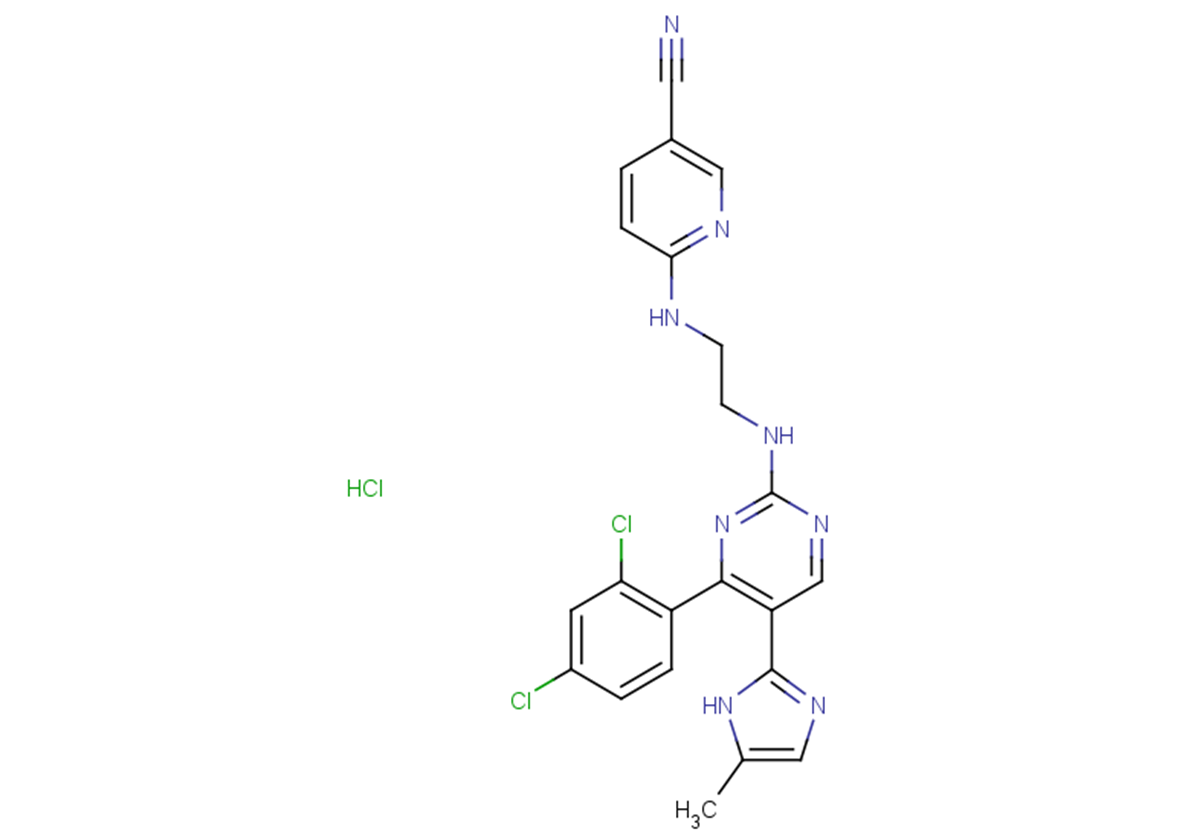No additional charges, what you see is what you pay! *
Stay in control of your spending. These prices have no additional charges, not even shipping!
* Rare exceptions are clearly labelled (only 0.14% of items!).
Multibuy discounts available!
Contact us to find what you can save.
This product comes from:
United States.
Typical lead time:
10-14 working days.
Contact us for more accurate information.
- Further Information
- Documents
- References
- Show All
Further Information
Laduviglusib (CHIR-99021) monohydrochloride is a highly potent and selective inhibitor of GSK-3α/β, with IC50 values of 10 nM and 6.7 nM respectively. It demonstrates remarkable selectivity for GSK-3, with over 500-fold selectivity over CDC2, ERK2, and other protein kinases. Additionally, Laduviglusib monohydrochloride serves as a robust activator of the Wnt/β-catenin signaling pathway. Moreover, it exhibits the ability to enhance self-renewal in both mouse and human embryonic stem cells. Furthermore, Laduviglusib monohydrochloride induces autophagy [1] [2] [3].
CHIR-99021 is a highly selective inhibitor of GSK-3α/β, which are regulators of the Wnt signaling pathway. By inhibiting GSK-3α/β, CHIR-99021 promotes the activation of the Wnt signaling pathway, thereby influencing the self-renewal and differentiation of stem cells. For example, human pluripotent stem cell (hPSC)-derived organoids such as Heart Forming Organoids (HFOs) represent a complex, highly structured in vitro model of early heart, gut, and vascular system development. These organoids are commonly used in teratogenic research, gene function analysis, and drug discovery studies. CHIR-99021 and IWP2 (Catalog No. T2702) are typically used during the establishment of this model for cell differentiation.
As research progresses, scientists have found that CHIR-99021 significantly enhances the quantity and functionality of stem cells, showing promising applications across various stem cell types. The scope of CHIR-99021's applications continues to expand. Apart from its use in the field of stem cells, CHIR-99021 also demonstrates potential therapeutic value in neurodegenerative diseases, tumors, and metabolic disorders. In neurodegenerative diseases, CHIR-99021 can inhibit the generation and aggregation of beta-amyloid proteins, thereby slowing the progression of conditions like Alzheimer's disease. In the field of tumors, CHIR-99021 can modulate tumor cell proliferation and apoptosis, inhibiting tumor growth and metastasis. Additionally, CHIR-99021 can improve symptoms of metabolic disorders such as diabetes and obesity, promoting metabolic balance in the body.
1797989-42-4
CHIR-99021 HCl is the hydrochloride salt form of CHIR-99021.
501.8
Stem Cells|PI3K/Akt/mTOR signaling
0.9807
type 2 diabetes, Alzheimer's disease, inflammation, cancer, addiction, and bipolar disorder.
Cl.N#CC1=CN=C(C=C1)NCCNC=2N=CC(C3=NC=C(N3)C)=C(N2)C=4C=CC(Cl)=CC4Cl
GSK-3



